By now you might have seen the posts across several social media platforms: There is a new Zombies Need Brains Kickstarter campaign underway. For eleven years now, ZNB has been publishing quality short fiction from teams of established professionals and new voices found through open calls for stories. We’re doing three anthologies this year, and before I get to the advice part of the post, I wanted to take a bit of time to tell you about them.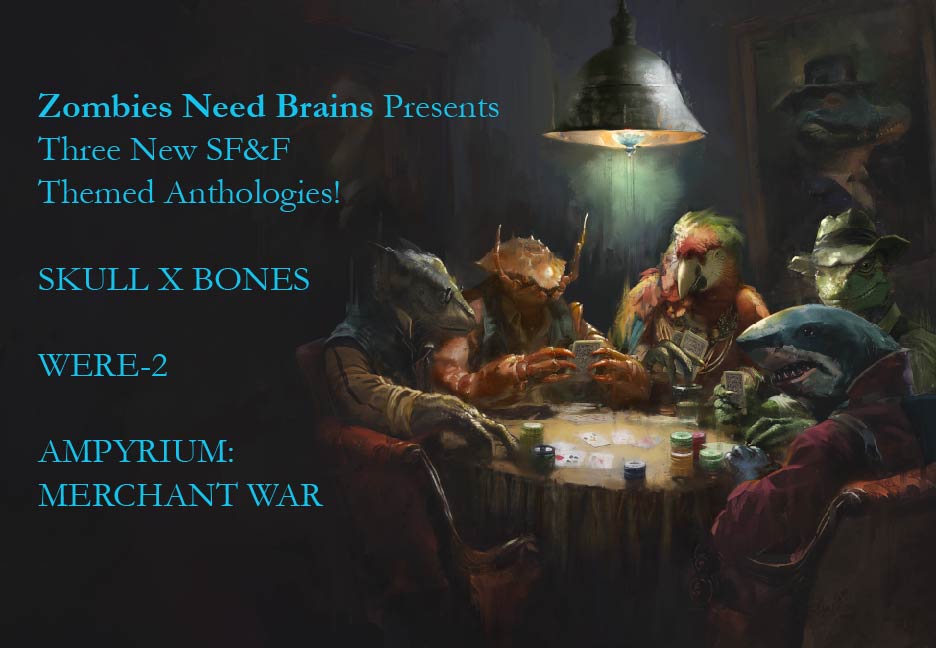
The first anthology is Were- 2, and is edited by Joshua Palmatier and S.C. Butler. The original Were- anthology came out in 2016, and featured stories about were-creatures other than werewolves. This new anthology has a similar theme. I wrote a story for Were-, one I still love, called “A Party For Bailey.” For my were-creatures I chose bears, and that’s all I’ll say. I’m sure you’ll love Were- 2 — its anchor authors include Randee Dawn, Auston Habershaw, Gini Koch, Gail Z. Martin and Larry N. Martin, Harry Turtledove, Tim Waggoner, and Jean Marie Ward.
This year’s second anthology is Skull X Bones. It’s a pirate anthology that I will be co-editing with Joshua. We will be looking for speculative fiction stories of any sort (fantasy, paranormal, science fiction, horror), as long as they focus on pirates. Our anchor author lineup includes Rod Belcher, Alex Bledsoe, Jennifer Brozek, C.C. Finlay, Violette Malan, Misty Massey, and Alan Smale.
Finally, Joshua will be solo editing a follow up to the Ampyrium anthology that was published earlier this summer. Ampyrium is a shared fantasy world that debuted in seven novella-length stories written by Patricia Bray, S.C. Butler, Esther M. Friesner, Juliet E. McKenna, Jason Palmatier, Joshua Palmatier, and me. The new anthology, Ampyrium: Merchant War, will have anchor stories from all seven of us, plus another seven stories (or so) from an open call.
So, as a long-time ZNB editor (Skull X Bones will be my sixth ZNB anthology), and a longer-term ZNB author (in addition to those I have edited, I have written for a half dozen ZNB anthologies), what advice can I offer to writers hoping to sell stories to one collection or another? Each ZNB anthology receives literally hundreds of open call submissions. Usually we take seven or eight stories. So you want your story to stand out in good ways.
1) Pay close attention to the anthology themes. When we ask for stories written, say, about pirates, that doesn’t mean the story should merely mention pirates or have one corsair as a background character. It means pirates, of whatever sort, should be so central to the story that without them, the narrative does not exist. For an anthology like Ampyrium: Merchant War, you should probably plan to read some or all of the first anthology, to familiarize yourself with the setting and the themes of those original tales. Speaking as an editor, I can tell you that I reject more stories for not being on theme than for any other reason.
2) Read the submission guidelines. This is important for ANYTHING you submit to any market. All editors are swamped with stories and short on time. We want to find great stories, obviously, but we also want to get through our slush piles. When I get a story that’s written in a tiny font, or that is single-spaced (which makes a story MUCH harder to read), or has wonky margins, or a weird font color, I tend to start reading it with a negative attitude. The writer in question has already ticked me off by ignoring the guidelines, and now I’m looking for one more reason to reject the story and move on to the next one.
You don’t want that. You want to do everything right in terms of formatting and following directions, so that I read the story with an open mind, so that I accept or reject the story purely based on the quality of the writing and narrative elements. Follow. The. Guidelines.
3) Proof your story. Then proof your story. And then proof your story again. Look, typos happen. All of us who edit for ZNB are also professional writers. We all have typos in our own books and stories, and chances are we could read through them 100 times and still not catch every little error. But that said, again speaking as an editor, finding two or three typos on the very first page is much like receiving a story that didn’t follow the GLs (see above). It makes me wonder if the author of the story cared enough to edit. Taking pride in our work means, in part, making our manuscripts as clean as possible.
4) Think about your narrative — and how it relates to the theme — as broadly as possible. Joshua has said, in offering advice on panels, “Your first idea is not necessarily your best idea.” And he’s right. Sometimes, a great idea comes to us immediately. Those moments are magical, but relatively uncommon. More often, our first idea is the most obvious one, which can mean that it will be similar to the ideas of lots of other writers submitting to the anthology. Let your ideas for your story steep a bit. Give them time to take you in truly innovative directions.
5) Develop your ideas. My second most common reason for rejecting a story is that the idea of the narrative failed to move beyond just that: an idea. A story is more than a cool premise. A story is about characters, be they human or fantastical or alien. A story brings some sort of change or progress to the lives of those characters or to the world around them. If your synopsis of the story you’re submitting doesn’t include something about characters, their lives, and the way things change for them, chances are you need to rethink your story. And I would add this — generally speaking, if the word count of your story is under 2,500, it probably needs more development. We rarely take stories that are shorter than that, not because we want you to pad your word count, but rather because it takes time to develop a plot into something more than an idea.
The open call for stories for this year’s ZNB anthologies will begin soon after the Kickstarter ends. So, first things first: We have to fund the projects. We are already a quarter of the way to our goal, which is great. But we still have a long way to go, and we need your help!!
Thanks, and have a great week!









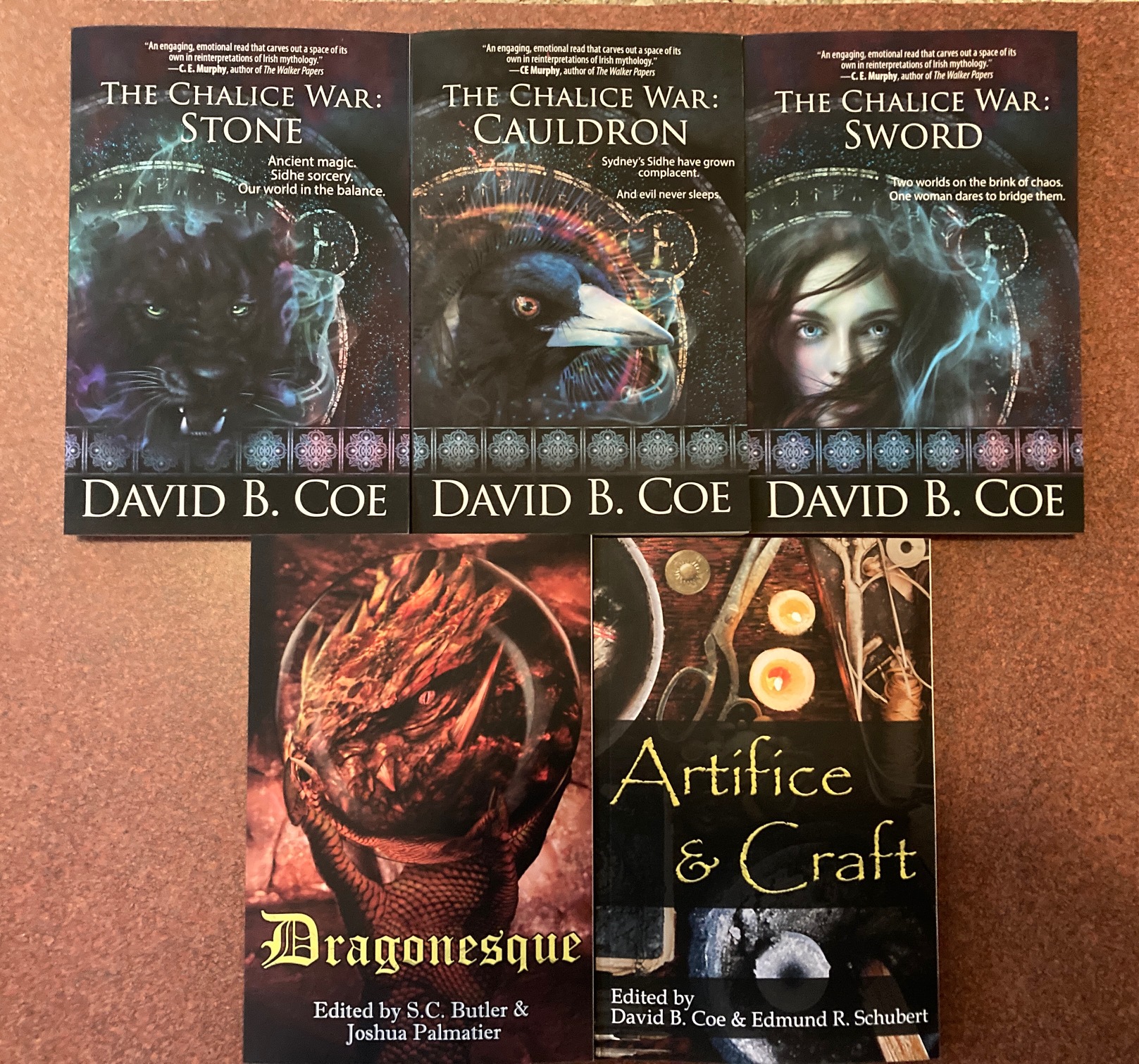
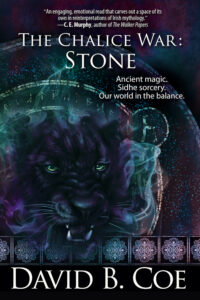 With this in mind, I thought it might be helpful to list a few things I learned, reminded myself of, and/or tried to do differently while writing my
With this in mind, I thought it might be helpful to list a few things I learned, reminded myself of, and/or tried to do differently while writing my 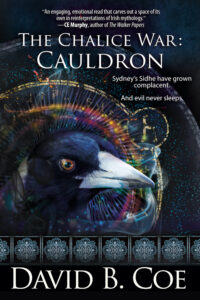 As I mentioned in a recent post, I have been doing a tremendous amount of editing and revising these past several months. Between co-editing (with
As I mentioned in a recent post, I have been doing a tremendous amount of editing and revising these past several months. Between co-editing (with  I have two other projects underway as well. A nonfiction thing that I am not ready to discuss in detail, and, at long last, the editing of the Winds of the Forelands books for re-release in late 2023 or early 2024. And I have another writing project — a collaborative undertaking — that I also cannot describe in detail, simply because I am not the organizing force behind the project, so it is not mine to reveal. But I am excited about it.
I have two other projects underway as well. A nonfiction thing that I am not ready to discuss in detail, and, at long last, the editing of the Winds of the Forelands books for re-release in late 2023 or early 2024. And I have another writing project — a collaborative undertaking — that I also cannot describe in detail, simply because I am not the organizing force behind the project, so it is not mine to reveal. But I am excited about it.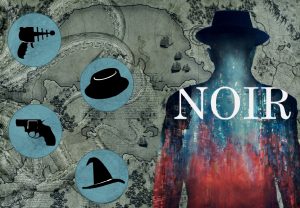 So far, we have received some very good stories. We have also received far, far more that won’t make the first cut. And so I thought I would go over again, briefly, the things that can make or break a story submission, at least for this editor.
So far, we have received some very good stories. We have also received far, far more that won’t make the first cut. And so I thought I would go over again, briefly, the things that can make or break a story submission, at least for this editor.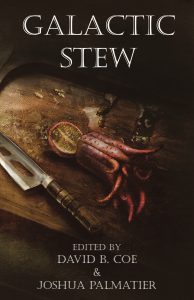 Will I reject a story simply because it is single-spaced instead of double-spaced? No, I’m not quite that mean. But when reading a story, knowing I have literally dozens more waiting in the queue, I will only tolerate so many flaws before I reject it. Remember, I have 500 stories to choose from. I can and will find what I’m looking for. No story is ever perfect, so ask yourself, do you want to expend one of your flaws on formatting? Or do you want to present your story correctly so that I can judge it on its artistic merits? The answer seems self-evident to me.
Will I reject a story simply because it is single-spaced instead of double-spaced? No, I’m not quite that mean. But when reading a story, knowing I have literally dozens more waiting in the queue, I will only tolerate so many flaws before I reject it. Remember, I have 500 stories to choose from. I can and will find what I’m looking for. No story is ever perfect, so ask yourself, do you want to expend one of your flaws on formatting? Or do you want to present your story correctly so that I can judge it on its artistic merits? The answer seems self-evident to me.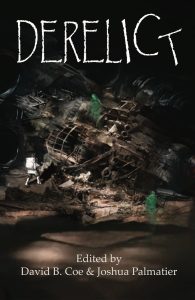 1) I abhor the cliché, but think outside the box. As
1) I abhor the cliché, but think outside the box. As 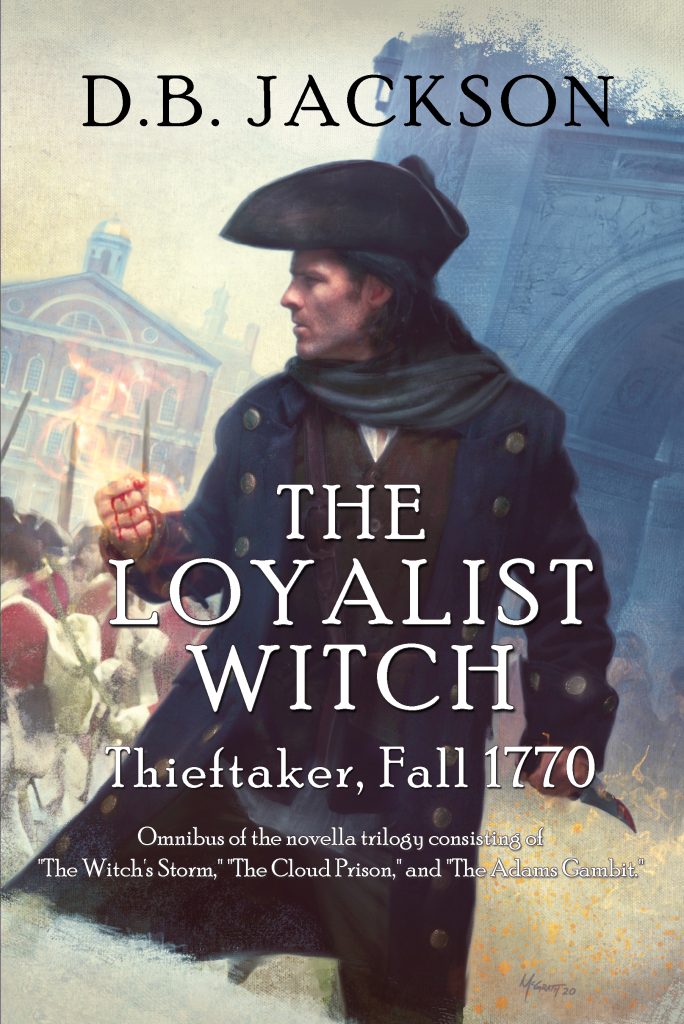 What are you giving for the holidays?
What are you giving for the holidays?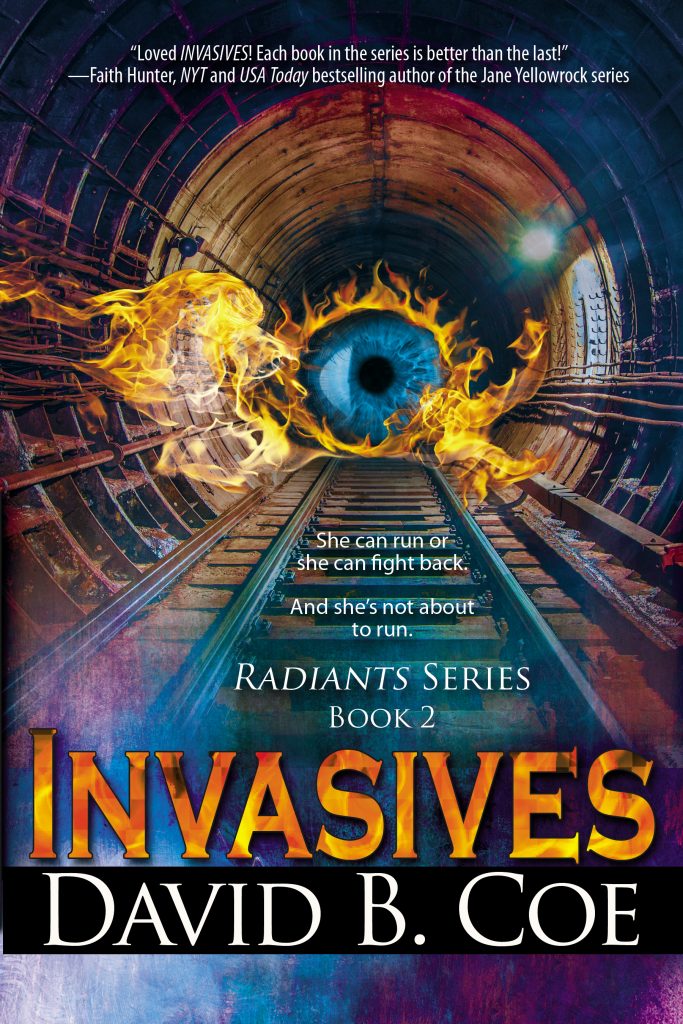 May I suggest a book, or several books?
May I suggest a book, or several books?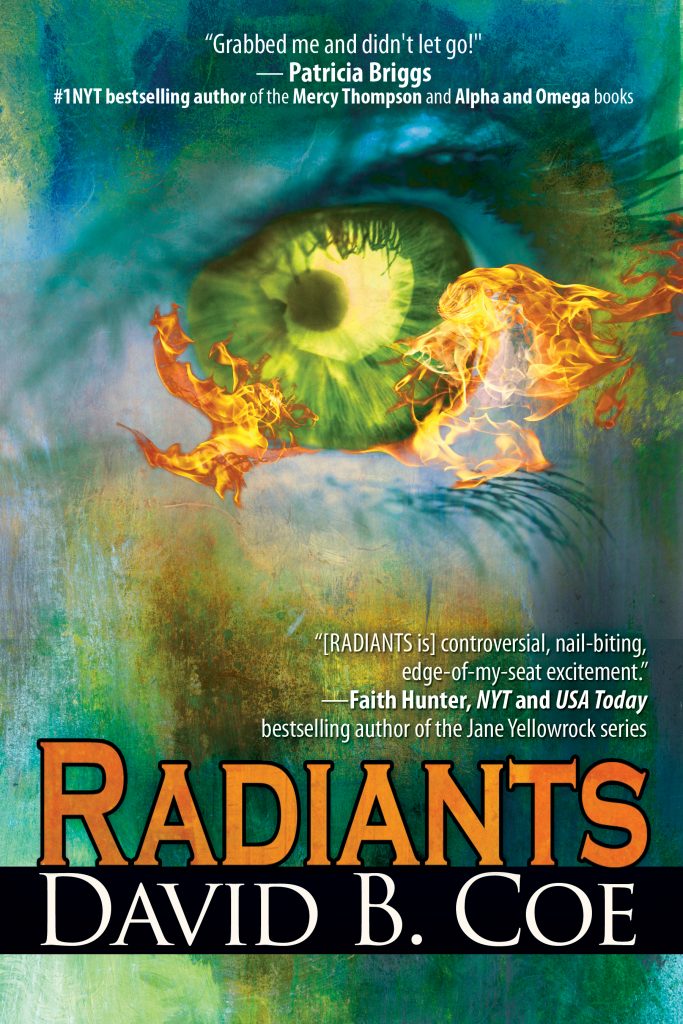 Yes, I know, this probably seems a little crass. But here’s the thing: Creators like me make our livings off the sale of our creations. It really is that simple. If our books (or music or art or whatever) don’t sell, we don’t earn.
Yes, I know, this probably seems a little crass. But here’s the thing: Creators like me make our livings off the sale of our creations. It really is that simple. If our books (or music or art or whatever) don’t sell, we don’t earn.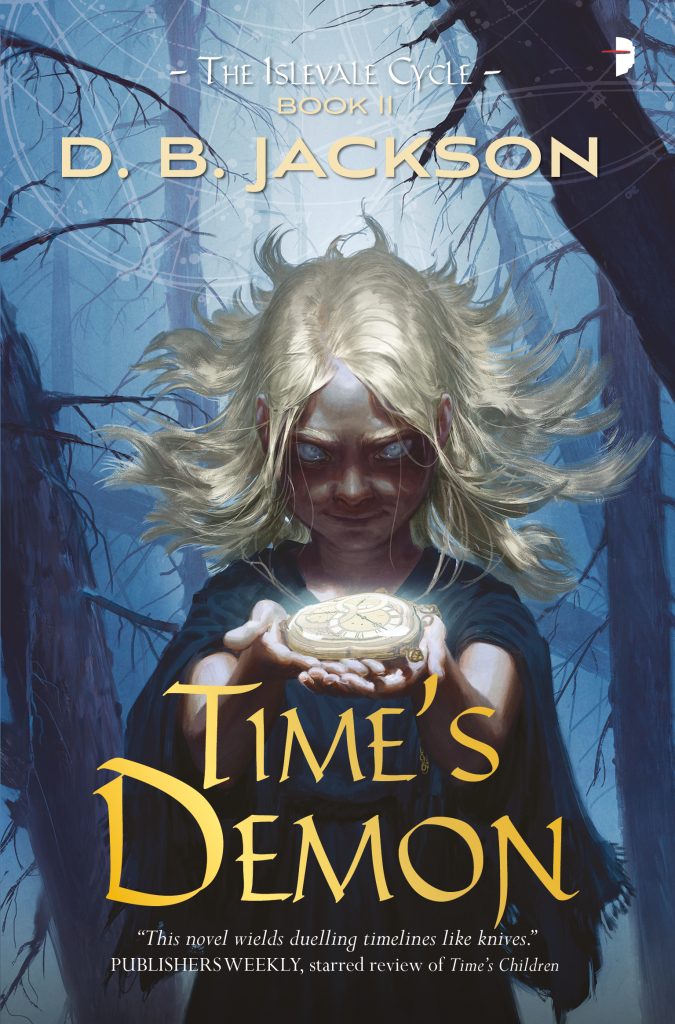 Now, many of you are probably saying at this point that you have already bought my books and, I hope, read and enjoyed them. That’s wonderful. Thank you. Truly.
Now, many of you are probably saying at this point that you have already bought my books and, I hope, read and enjoyed them. That’s wonderful. Thank you. Truly. As you know, early in 2023 I will be coming out with a new urban fantasy series that is steeped in Celtic mythology. Before working on this series, I hadn’t known much about Celtic lore. But I did my research, learned all I could, and then started to imagine ways in which I might blend those Celtic traditions with my vision for the stories I wanted to write. I tried to be respectful of traditions that are not my own, while also having fun and writing something I hoped would be fun for my readers.
As you know, early in 2023 I will be coming out with a new urban fantasy series that is steeped in Celtic mythology. Before working on this series, I hadn’t known much about Celtic lore. But I did my research, learned all I could, and then started to imagine ways in which I might blend those Celtic traditions with my vision for the stories I wanted to write. I tried to be respectful of traditions that are not my own, while also having fun and writing something I hoped would be fun for my readers. Two years ago at this time, I was revising Radiants and starting to organize my plans for Invasives, the second book in the sequence. I had never written a supernatural thriller before, but I had the idea and wanted to give it a go.
Two years ago at this time, I was revising Radiants and starting to organize my plans for Invasives, the second book in the sequence. I had never written a supernatural thriller before, but I had the idea and wanted to give it a go. Around that same time, I was also reading submissions for the Temporally Deactivated anthology, my first co-editing venture. Last year I opened my freelance editing business, and a year ago at this time, I was editing a manuscript for a client.
Around that same time, I was also reading submissions for the Temporally Deactivated anthology, my first co-editing venture. Last year I opened my freelance editing business, and a year ago at this time, I was editing a manuscript for a client.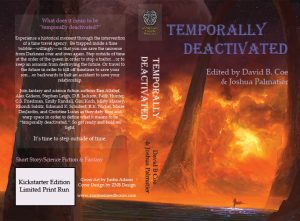 Last week, I wrote about planning out my professional activities for the coming year. This week, I want to discuss a different element of professional planning. My point in starting off with a list of those projects from past years is that just about every year, I try to take on a new challenge, something I’ve never attempted before. I didn’t start off doing this consciously — I didn’t say to myself, “I’m going to start doing something new each year, just to shake things up.” It just sort of happened.
Last week, I wrote about planning out my professional activities for the coming year. This week, I want to discuss a different element of professional planning. My point in starting off with a list of those projects from past years is that just about every year, I try to take on a new challenge, something I’ve never attempted before. I didn’t start off doing this consciously — I didn’t say to myself, “I’m going to start doing something new each year, just to shake things up.” It just sort of happened. As it turns out, these new challenges have brought me to a place where I can say, in all candor, that I have never been happier in my work than I am now. Each time I try something new, I reinvigorate myself as a creator. I force myself out of the tried-and-true, the comfortable. With each of the new projects I mentioned above I had a moment of doubt. I wondered if I was capable of accomplishing what I set out to do. Now, I’m a pretty confident guy when it comes to my writing chops and my ability to help others improve their writing, so those doubts didn’t last long. But they were there each time.
As it turns out, these new challenges have brought me to a place where I can say, in all candor, that I have never been happier in my work than I am now. Each time I try something new, I reinvigorate myself as a creator. I force myself out of the tried-and-true, the comfortable. With each of the new projects I mentioned above I had a moment of doubt. I wondered if I was capable of accomplishing what I set out to do. Now, I’m a pretty confident guy when it comes to my writing chops and my ability to help others improve their writing, so those doubts didn’t last long. But they were there each time. But those new challenges did more than that. They kept my professional routine fresh. I am a creature of habit. I try to write/edit/work every day, so in a general sense, my work days and work weeks don’t change all that much. By varying the content of my job — by writing new kinds of stories and expanding my professional portfolio to include editing as well as writing — I made the routine feel new and shiny and exciting. And at the same time, these new projects made it possible to return to some old favorites, notably the Thieftaker series, with renewed enthusiasm.
But those new challenges did more than that. They kept my professional routine fresh. I am a creature of habit. I try to write/edit/work every day, so in a general sense, my work days and work weeks don’t change all that much. By varying the content of my job — by writing new kinds of stories and expanding my professional portfolio to include editing as well as writing — I made the routine feel new and shiny and exciting. And at the same time, these new projects made it possible to return to some old favorites, notably the Thieftaker series, with renewed enthusiasm.